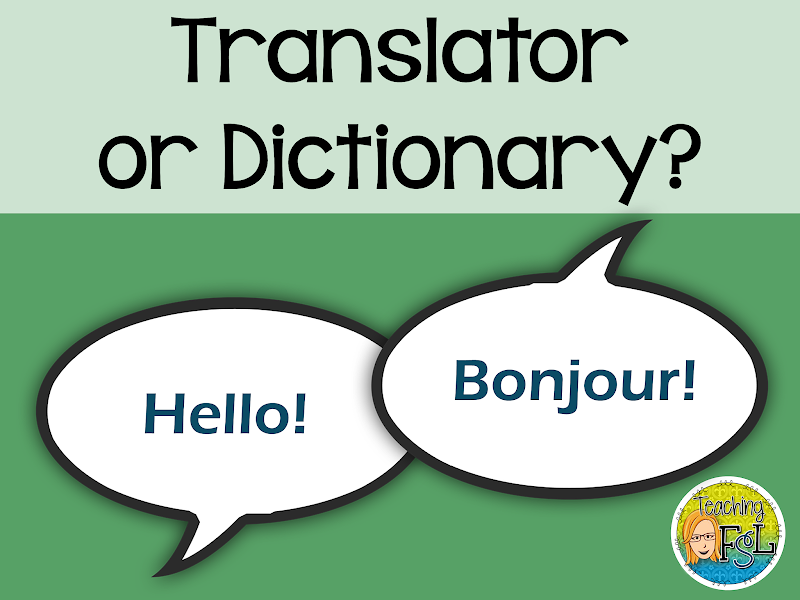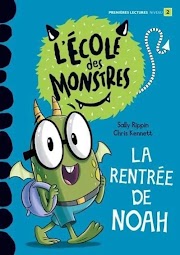Now YOU have something to be excited about as well! This coming Sunday, my favourite Teacher Resource web site, TeachersPayTeachers is having a site-wide SUPER sale! Many individual sellers will be reducing prices (by u…
Happy Manic Monday ! I've got a little freebie for you today, that I used last year as a bit of an incentive for students to be on time & settled in, which worked well thanks to the help of YouTube, and other online sour…
Do you let your students use an online translator, such as Google Translate , Reverso, or if you've been teaching as long as I have - do you remember what was once the leader of the pack, Bablefish ? I don't. EVER . And…
Today I have the pleasure of featuring an activity given to me by Heidi Raki of Raki's Rad Resources (whose literacy centres, math resources, word walls, and many other products can also be found at TpT and Teachers Noteboo…
My blog post title is totally tongue-in-cheek of course, but sometimes it DOES feel like almost all of my bloggy friends are located in our friendly neighbour country rather than here at home. That's why I'm…
Please pardon my mess! My blog has gotten a bit disheveled over the past few months, and I'm loooong overdue for a little housekeeping. If there's anything in particular that drives you bonkers when you visit me here, …
Popular Posts
Categories
- FSL (52)
- French (52)
- Creating classroom activities (35)
- immersion (35)
- resources (34)
- planning (27)
- free (25)
- technology (22)
- Bright Ideas (20)
- Canadian (20)
- culture (20)
- social studies (20)
- free classroom activities (19)
- literacy (19)
- vocabulary (18)
- classroom management (17)
- professional development (15)
- teacher organization (15)
- geography (11)
- pedagogy (11)
- language (10)
- regional accents (10)
- games (9)
- grammar (9)
- history (9)
- social awareness (9)
- tech projects (9)
- BYOD (8)
- songs (8)
- Chanson de dimanche (7)
- oral communication (7)
- writing process (7)
- listening (5)
- professionalism (5)
- dialects (3)
- technology games (2)










